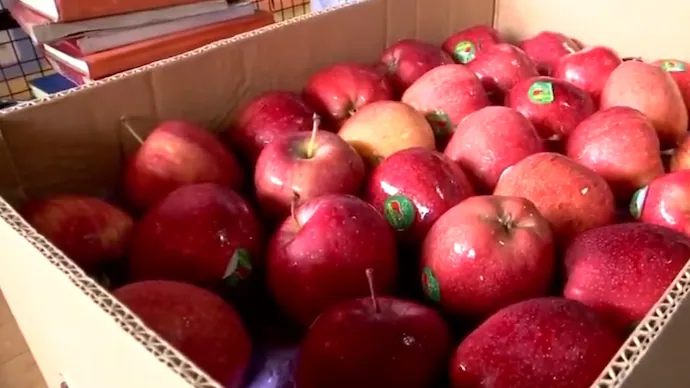Introduction
In a significant move supporting domestic agriculture, Maharashtra Deputy Chief Minister Devendra Fadnavis has lauded Pune traders for their decision to boycott Turkish apples. The initiative aims to promote locally grown Indian apples and reduce reliance on imported fruits. This decision comes amid growing concerns over quality, pricing, and the economic impact of imported produce on Indian farmers.
Why Are Pune Traders Boycotting Turkish Apples?
- Quality Concerns:
- Turkish apples have faced criticism for excessive wax coating and pesticide residues, raising health alarms.
- Indian consumers and traders prefer fresher, locally sourced apples with stricter quality controls.
- Economic Impact on Indian Farmers:
- Cheaper Turkish imports have undercut domestic apple prices, hurting farmers in Himachal Pradesh, Jammu & Kashmir, and Maharashtra’s Nashik region.
- The boycott aligns with the “Vocal for Local” campaign, encouraging support for Indian agriculture.
- Political & Trade Dynamics:
- Turkey’s pro-Pakistan stance on Kashmir has strained bilateral trade relations, influencing the boycott.
- The move is seen as a strategic push for self-reliance (Atmanirbhar Bharat) in fruit production.
CM Fadnavis’ Statement & Government Support
- Public Endorsement: Fadnavis called the traders’ decision “patriotic and economically prudent,” urging other cities to follow Pune’s lead.
- Policy Backing: The Maharashtra government plans to subsidize cold storage facilities and improve supply chains for local apples.
- Farmer Benefits: Nashik’s apple growers have welcomed the move, expecting better prices and reduced competition from imports.
Market Reactions & Consumer Response
- Traders’ Stand: The Pune Fruit Vendors’ Association confirmed the boycott, switching entirely to Himachal and Kashmiri apples.
- Price Impact: Early reports suggest a 10-15% price rise for Indian apples due to increased demand.
- Consumer Sentiment: Many buyers support the shift, citing better taste and trust in local produce.
Broader Implications for India’s Agri-Import Policy
- Reducing Import Dependency:
- India imports over 50,000 metric tons of apples annually from Turkey, China, and the U.S.
- The boycott could set a precedent for other agricultural products like kiwis and cherries.
- Global Trade Relations:
- If scaled nationally, the move may prompt Turkey to reconsider its geopolitical stance to regain market access.
- It also tests India’s WTO compliance on trade restrictions.
- Sustainable Farming Push:
- The government is incentivizing high-density apple farming in Maharashtra to boost yields and quality.
What’s Next?
- Expanding the Boycott: Other states like Delhi and Karnataka may join the initiative.
- Quality Upgrades: Indian farmers are adopting better post-harvest techniques to compete globally.
- Diplomatic Outreach: Turkey may seek negotiations to address trade concerns.
Conclusion
The Pune traders’ boycott of Turkish apples, endorsed by CM Fadnavis, marks a critical step toward agricultural self-sufficiency. While benefiting local farmers, it also reflects India’s growing assertiveness in linking trade with geopolitics. If successful, this could reshape India’s fruit import policies and strengthen the domestic agrarian economy.



